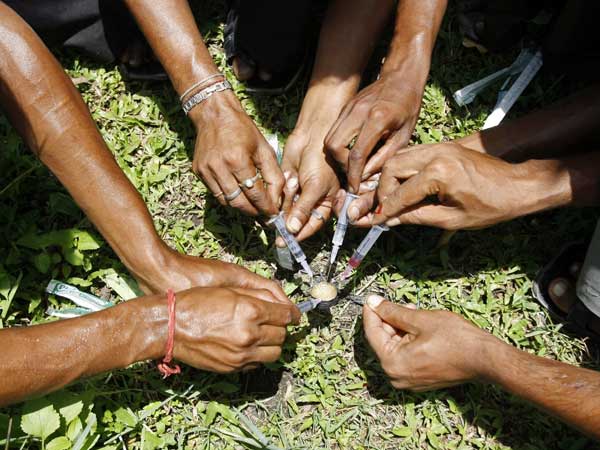
It was President Reagan who introduced mandatory drug testing for federal employees in the United States, at that time there was much debate on the legal and constitutional basis for such a test. Back in the 80s, a ‘health’ crisis had seized the country and drug addiction was at a high. Both the government and society were struggling to combat the menace. Nancy Reagan, the first lady, famously said “Just say no” when asked by a school girl about how she must respond if someone offered her drugs. It became the slogan for the anti-drug fight.
Punjab, in 2018, is reeling under a similar crisis. Last month it was reported that there were as many as 30 drug-related deaths. Discouraging reports of the breakdown of the drug enforcement apparatus and rehabilitation facilities have been presented by the media. One such report on a news channel disclosed that rehab clinics had moved away from providing treatment to addicts to facilitating the drug habit – pills were crushed, mixed in water and directly injected into the bloodstream.
During the Punjab elections, the war against drugs became the lynchpin of the campaign, with the Congress Party promising to eradicate the scourge of drugs from the state in four weeks. An impossible claim but enough to move a people stretched by their inability to handle the loss of especially the young to drugs. They bought the line – hook, line and sinker. Whilst Captain Amarinder Singh may not have been able to live up to campaign rhetoric, the spate of deaths in the last few months have pushed the government into action. One of the suggestions made was that the bureaucracy in Punjab must undergo a mandatory drug test once a year. If the result is positive, the addicts will lose their jobs. Sounds tough, but its inevitability can hardly be disputed. However I would suggest a more calibrated approach, to stem the discontent that will follow from such measures – namely the suspension of a user and compulsory rehab, should he be unable to stay clean (surprise drug test) then a dismissal from service should follow. This staggered approach is preferable to a person, losing job in the first instance. Most people deserve a second chance and especially when it comes to a deep societal problem like drug abuse, where addicts are often viewed more as victims than criminals by society.
A survey conducted by the Government of India in 2015 – threw up some useful analysis about the drug problem in Punjab. According to this survey, which covered ten districts of Punjab, the total number of drug users were 2,32,856, with nearly all being male. Furthermore, 89 per cent of drug addicts were literate and educated. Another statistic show 83 per cent stated that most had jobs, and were hence “functioning” drug addicts. They were almost equally divided between rural (56 per cent) and urban centres. There is far more in-depth data than what is quoted here, but it puts forth some interesting facts about the penetration of the drug problem in the state.
A majority of the drug users surveyed in this study, seem to hold down jobs and are educated, furthermore being male, they are in all likelihood primary providers or supporting families. Since the main addiction in the state is to heroin, which has noticeable tell signs, both physiological and behavioural, it is likely families, close work groups and friends are aware of the addiction in some measure. Hence, increasing harsh punishment for users without an option to reform will go against a drug eradication drive, which will necessarily need public support.
But these are more detailed discussions and stand only if politicians get out of the way. When the Punjab government announced the compulsory dope test, predictable political banter followed with Akali Dal Leader, Harsimrat Kaur Badal suggesting that Rahul Gandhi first take the test. In a TV debate I participated in, the Congress spokesperson made a big noise about opposition party members coming under the scanner of this drug test. Increasingly the discourse became about a “dope test challenge”. Wisdom lies (I am learning) in refraining (whenever possible) from commenting on the comments of politicians! So I shall offer no summations one-way or the other.
But one thing that is amply clear is that the opposition and the government will have to come together for the people of Punjab, they will need to suspend political rhetoric and pitch their battles on other issues. It is all well and good to protest the release of a film over “pride” but quite another to cremate the young, one after another, who have fallen to a “disease” that is not only preventable but can also be eradicated.





